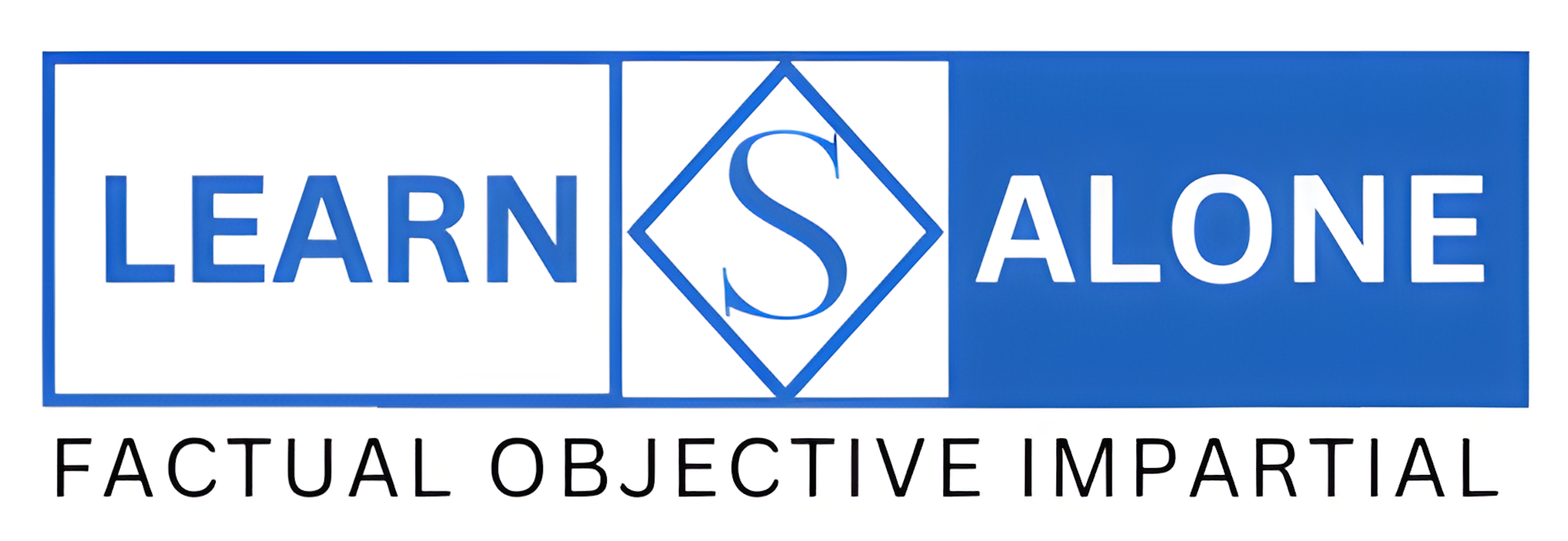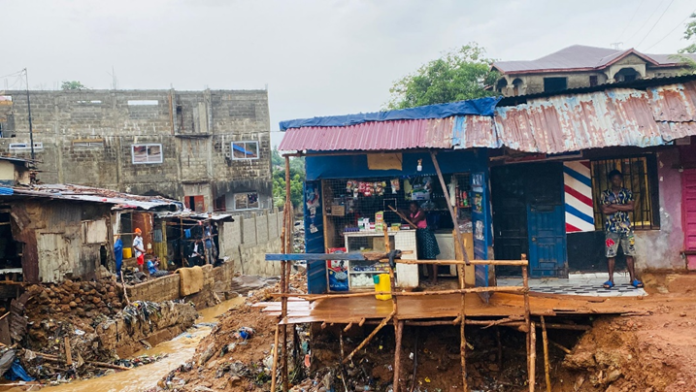Authored by: Marion Precious George
The demolition of the vital bridge at Hill Station Back of Old School in Freetown, Sierra Leone, has left thousands of residents in distress, cutting off access to key areas including Hill Top, South Ridge, and the American Embassy.
While local authorities insist the bridge was a “death trap” requiring urgent demolition, affected residents accuse Councilor Mohamed Dabor of acting individually without providing alternative routes. The ensuing delays in reconstruction have deepened frustrations, with allegations of political motives and bureaucratic failures further complicating the crisis.
For years, the Hill Station Back of Old School Bridge served as a crucial passage connecting multiple communities in Freetown. Now, its absence has forced residents into exhausting indirect route along poorly maintained bypass roads, significantly increasing travel time and costs.
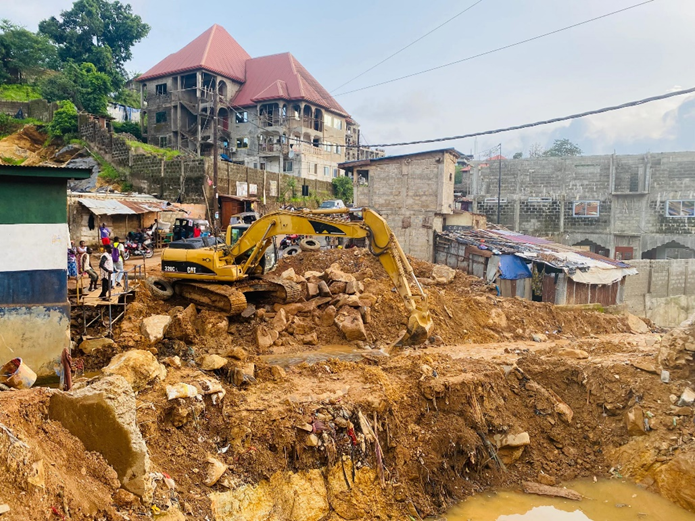
Hill Station is one of Freetown’s oldest neighborhoods, home to thousands of families, traders, and workers. The demolished bridge was a lifeline, allowing easy movement between homes, schools, markets, and hospitals.
The broken bridge that had left thousands stranded
Alhaji Kamara, a South Ridge community stakeholder, lamented the councilor’s decision to demolish the bridge without community consultation. “People now spend extra money and hours just to reach their homes,” he said. “Even vehicle owners resort to commercial transport because the alternative routes are nearly inaccessible.”
Mabinty Turay, the community’s chairlady, highlighted the human cost of the demolition. “Moving the sick to hospitals has become a nightmare—we now carry patients on foot because vehicles can’t pass,” she said, condemning the situation as a violation of basic rights. She also accused Councilor Dabor of sidelining the area’s Member of Parliament, Honorable Benjamin Turay, suggesting political rivalry between the opposition APC and ruling SLPP influenced the decision.
Councilor Mohamed Dabor denied allegations of poor communication, insisting the bridge’s shaky structure posed an imminent danger. “If I had ignored it and a disaster occurred, I would have been blamed,” he argued. He acknowledged the inconvenience but assured residents that reconstruction plans were underway, though he provided no concrete timeline.
Meanwhile, Member of Parliament, Benjamin Turay expressed frustration over being excluded from the demolition decision. During a site visit, he revealed that discussions with the Sierra Leone Roads Authority (SLRA) and SECON had been ongoing but were stalled by poor coordination between local leaders. “Years of promises have been wasted due to this lack of unity,” he said, urging community support for the impending project.
MP Benjamin Turay speaking to residents at the site of the demolished bridge
Despite assurances, construction has barely begun. An excavator stationed at the site operates sporadically, and residents report that drainage systems—unrelated to the bridge—have been unnecessarily destroyed, worsening flooding risks.
A local civil society activist warned of impending disaster. “We’re running out of time. Once heavy rains arrive, the situation will become unmanageable,” he said, criticizing authorities for their sluggish response.
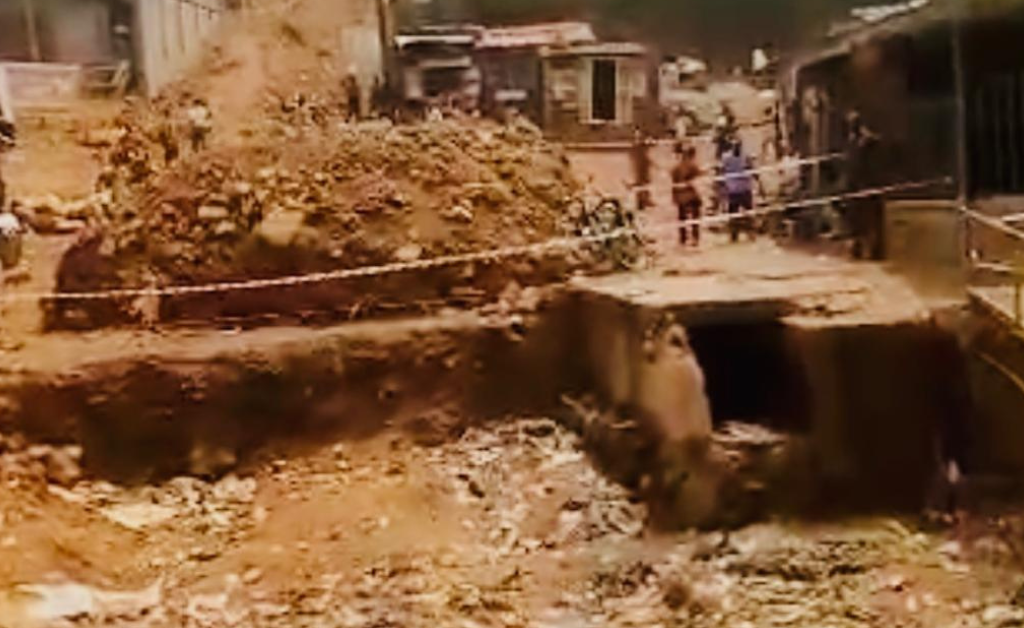
Freetown’s deteriorating road network has long been a source of frustration for residents, but the recent demolition of the Hill Station Old School Bridge has exposed just how vulnerable the city’s transportation system really is. Across the capital, from the steep slopes of Leicester to the bustling streets of Calaba Town, broken roads and collapsing bridges are disrupting lives, crippling businesses, and putting lives at risk—with no comprehensive solution in sight.
Tractor at the site for over one month without operation
The Hill Station bridge crisis is just the latest example of Freetown’s infrastructure emergency. For months, thousands of residents have been stranded, forced to take dangerous, hours-long by-passes because of a single demolished bridge. But this is not an isolated case. In communities like Mount Aureole, Kroo Bay, and Congo Town, roads are so badly eroded that they become obstructed rivers during the rainy season. Market traders lose goods to flooding, students miss school, and ambulances struggle to reach emergencies.
One of Freetown’s most infamous infrastructure disasters occurred in September 2018, when the Savage Street Bridge, a critical link between the city center and the east, collapsed without warning. Cut off access to Connaught Hospital and key businesses for weeks. Exposed severe neglect—residents had reported cracks months earlier
A government investigation later blamed poor maintenance and illegal construction near the bridge’s foundation. Despite promises of swift reconstruction, repairs took over a year, forcing detours through already congested streets.
The impact goes beyond inconvenience—it’s a matter of survival. In May 2024, a pregnant woman in Dwarzak reportedly died after being carried on a makeshift stretcher because an ambulance could not navigate the damaged roads. Stories like these are becoming tragically common.
Bad roads are also suffocating local businesses. Traders at Shell Market and Susan’s Bay report losing up to 60% of their income due to increased transport costs and spoiled goods. “Before, I could take a bike straight to my customers,” says fish seller Kadiatu Kamara. “Now, I pay extra for longer routes, and half my stock goes bad before I even get there.”
Public transport operators are also suffering. Bike riders, who dominate Freetown’s transit system, say they now spend more on fuel and repairs due to potholes and eroded pathways. Just as with the Hill Station Bridge, the government’s response has been slow and fragmented. The Freetown City Council blames a lack of funding, while the central government points to mismanagement by local authorities. Meanwhile, residents are caught in the middle.
Councilor Mohamed Dabor, who ordered the Hill Station bridge demolition, insists it was a safety measure. But critics argue that the city’s infrastructure problems require long-term planning, not emergency fixes. Many believe that without investing in proper drainage and durable materials, this cycle will continue.
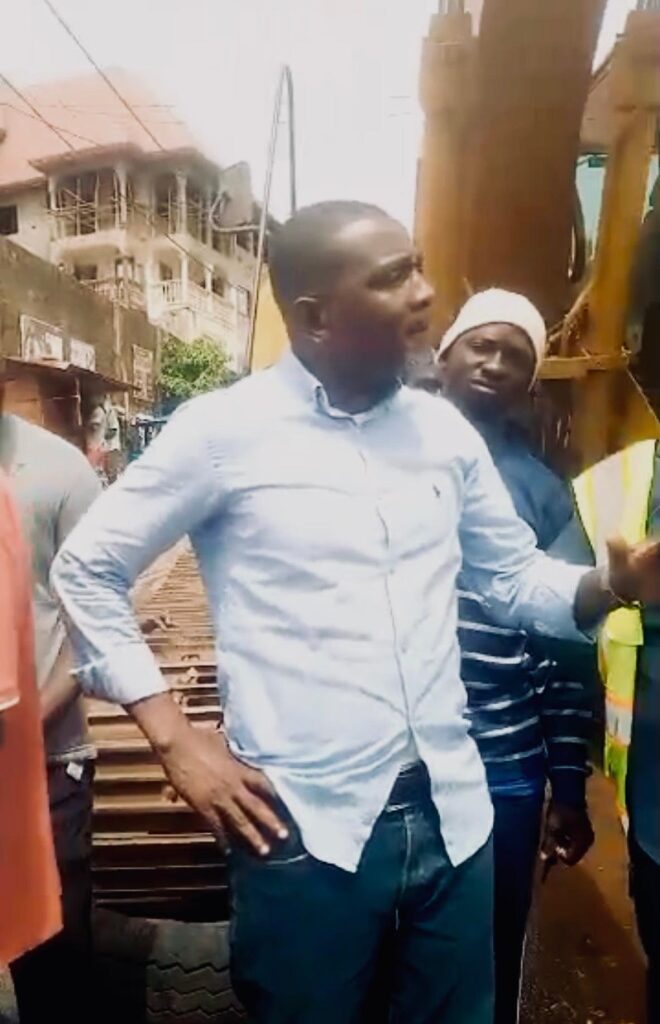
With the rainy season worsening each year, experts warn that Freetown’s road crisis will only escalate. The Sierra Leone Roads Authority (SLRA) has announced plans for repairs, but past promises have gone unfulfilled.
As the Hill Station incident shows, one broken bridge can paralyze an entire neighborhood. But across Freetown, dozens of similar disasters are waiting to happen. Without urgent action, the city’s roads, and the people who depend on them, will keep paying the price.
With the bridge’s reconstruction mired in delays and disputes, Hill Station residents remain trapped in a logistical nightmare. As accusations fly between officials, the community’s plea is simple: prioritize people over politics and rebuild their lifeline, before the rains render their suffering irreversible.
